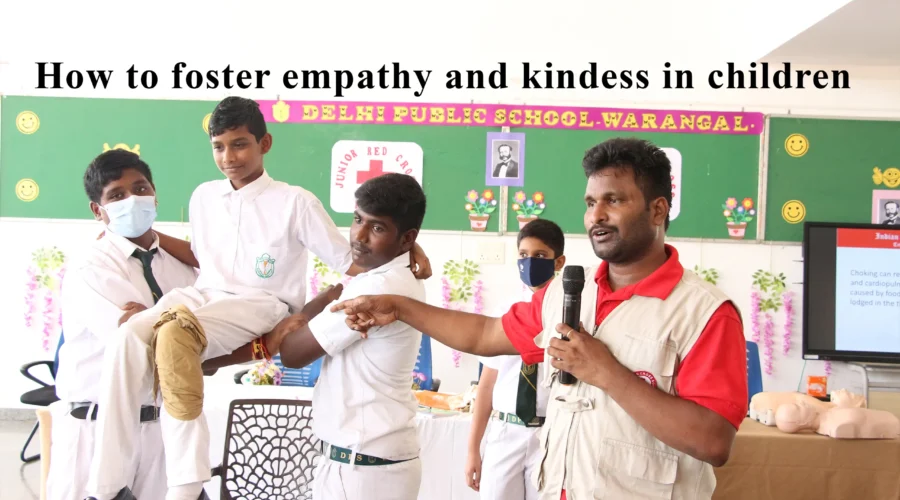There is no smaller act of kindness. Kindness in every form is appreciable. Kindness is the quality of being gentle, helpful and caring toward others. We know how it feels to be treated with kindness. Empathy is to understand what others are feeling i.e. to place oneself in another’s position which helps to connect with that person easily. At DPS Warangal, in line with the ethos of DPS society, our focus is always to develop compassion and therefore follow our motto of “Service before Self”.
Why is it important to have empathy for children?
It is important to develop kindness and empathy in children because:
- It promotes stronger relationships with their parents, teachers, and friends.
- It can prevent bullying and encourage social harmony.
- It builds a strong sense of tolerance and improves mental health.
- It helps them get support from others.
This collectively builds a sense of connection which helps to build trust and kids are more likely to succeed in various aspects of life. Here are 5 ways to foster empathy and kindness in children.
1. Encourage kindness through stories –
Get kids involved in watching inspirational stories and reading stories that portray kindness and empathy through different characters. To display kindness in schools:
- Introduce custodians, keepers, and cafeteria staff in the class, acknowledge their job, and thank them for the role they perform.
- Put kindness boards listing acts of kindness.
- Treating other staff members and teachers with kindness and empathy.
- Holding assemblies to teach values to kids.
2. Model kindness and empathy yourself –
Modelling the behaviour that you want kids to display will give them reasons to believe in kindness with visible results and examples. Encouraging good manners, helping someone in need, and highlighting the importance of friendships will promote the learning process as kids will observe people in real time. Frequently ask your child about how they are feeling, this makes them sense how it feels like being cared for and valued.
Encourage your child to express gratitude. Model gratitude and point out all the things that one should be thankful for in life.
3. Better prevent than punish –
Promote kindness in kids with a positive approach to prevention rather than punishment. It involves rewarding a child whenever he/she performs an act of kindness. This approach focuses on inclining students towards the positives and diverting the negatives. Careful monitoring and support can encourage kindness and empathy among children. Children often commit mistakes, instead of shouting at them, understanding their perspective and discussing how to approach a problem differently could lead to a more positive result.
4. Teach self-compassion –
Self-compassion leads to a higher level of happiness and optimism. It is an ability to build acceptance, understanding and love inward. Many people are able to extend compassion and love toward others because they follow self-compassion. Both self-compassion and compassion towards others involve mindful attention—the ability to notice suffering—and the awareness that others can suffer too.
5. Inculcate good manners –
No act of kindness is ever wasted. Kindness can simply begin with saying “thank you” or “please”. Practising good manners gradually fosters qualities of kindness and empathy in children. Some polite habits to follow are:
- Smile and have a good attitude.
- Apologise quickly for mistakes or negative behaviour.
- Say Excuse me.
- Wait for your turn to speak.
- Avoid remarking on someone’s appearance.
- Knock on closed doors.
- Offer to help.




